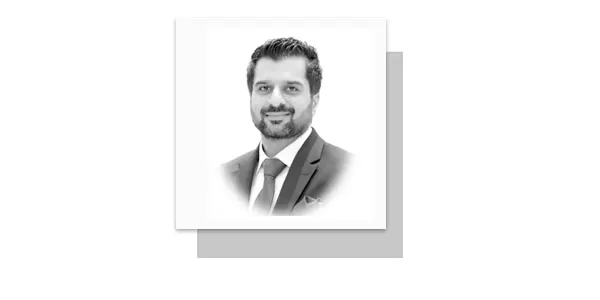DESPITE differences in caste, creed or race, all humans share common characteristics. Their shared existence on this planet grants them the right to mutual respect and survival. They have also been granted the right to an equal share of Earth’s bounty. The social contract aimed to guarantee equal treatment for all humans. In truth, the social contract established societies. Initially, the selection of tribal leaders was a matter of mutual consent. To overcome the dangers of the wilderness, food shortage and tribal conflict, nomadic people created larger societies. Such societies needed better systems to provide necessities, promoting inclusivity and fairness but crumbled when these benefits weren’t shared equally.
The state’s affairs were entrusted to the wise individuals of the societies. Back then, trust depended on immediate accountability. This was ensured through the creation of a publicly accountable council of elders. Even in the hardest times, societies survived because their people knew their rights. Due to compromised mindsets, the inability to elect wise leaders resulted in a complete societal breakdown. The historical record demonstrates that societal development is linked to the sincere embrace of democratic principles.
Cultivating a culture of true democratic values requires a shift in people’s thinking to embrace democracy itself. Intellectually sound people understand their self-interest. They choose representatives whose duty is to serve the interests of the whole society. However, the development of such brilliant minds takes decades and these individuals are crucial for societal progress. Despite electing representatives, many democracies fall short, leading to calls from the same citizens for a chance to regain control by removing their representatives and electing new ones. The cycle continues as the public chooses their representatives through voting, becoming frustrated when governments fail to deliver. People don’t understand that average minds can’t create exceptional outcomes. Societies need brilliant minds to achieve the outcomes people desire.
What exactly constitutes a “best mind” needs clarification. The best minds are those untempted by power or material possessions. These minds embody intellectual soundness and champion a system where merit, justice, equity and inclusiveness are prioritized. What stops democracies from electing leaders with such intellectual brilliance? The human heart’s longing for equality plays a role. The human heart craves equality, even if it means dragging the strong down to the weak, leading men to choose servitude with equality over freedom with inequality. This breeds a refusal in humans to accept anyone’s superiority, ultimately hindering societies from fully leveraging the potential of exceptional minds. Consequently, the most intelligent minds withdraw from public life, leaving governance to those who are average and lack the principles essential for the common good. Societies that exhibit this tendency miss out on growth opportunities. Moreover, men with exceptional abilities often shy away from the chaos of political campaigns. The lack of the best minds in key societal positions is due to this one factor. Compromised growth leads to negative consequences for societies. Societies like these often see corruption, wrongdoing and power grabs by the elite become commonplace. Unless struggling democracies address this issue, they won’t be able to meet their goals.
De Tocqueville proposes a solution to address this problem. According to him, New Englanders, due to their strong education, freedom and democratic values, readily accept intellectual and moral leadership without taking offence. New England stands out as the region with the strongest democracy. Singapore’s “Managed by the elites” policy, mirroring this approach, sees a group of intelligent elites prioritizing the nation’s well-being. The country has been actively attracting top talent from around the globe in every field to improve their nation. An educated population aids their leaders in realizing their objectives. The result is significant progress and expansion in social, political and economic fields. Education has been key for both New England and Singapore in achieving their success. Education empowers social change. It shifts perspectives and encourages people to put aside their egos, particularly in politics and across all areas of life. Educated voters select their representatives without being offended by the perceived intellectual and moral superiority of the candidates.
Only when people are educated enough can their choices lead to prosperity and development. Conversely, those lacking education often resist individuals with greater intelligence and strong morals. Illiteracy shuts off rational thinking, leading illiterate people to blindly follow their leaders due to hero worship. Societies with low literacy rates are more likely to experience polarization, division and conflict. Elite capture flourishes in these kinds of societies. This system lets a select few hold all the power and rule the people by manipulating their thoughts. The term “democracy” is employed to give the impression that the general population has a voice in government affairs. Elected officials in illiterate societies often prioritize their supporters over fairness, crushing their opponents with brutality instead of following ethical and moral norms. Democracies with high illiteracy rates are prone to a multitude of evils.
Education is the antidote to all these evils. Well-informed citizens resist manipulation by politicians and instead choose leaders with strong intellect and morals. It promotes unity, encourages inclusion and creates shared prosperity. Pakistan’s high illiteracy rate undermines its democracy, enabling leaders to exploit the population’s lack of democratic understanding. Prioritizing education helps cultivate a genuine democracy within the nation. Pakistan’s future hinges on the state’s capacity to cultivate educated, informed citizens. This is the solution to all the country’s long-standing democratic issues. Indeed, A thriving democracy depends on education.
—The writer is an educationist and a Commoner from 44th Common, based in Sargodha.
(waqarhassancsp@gmail.com)










